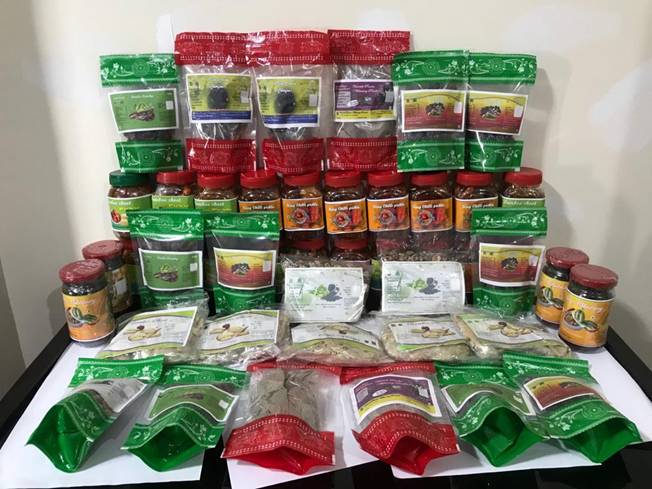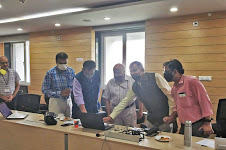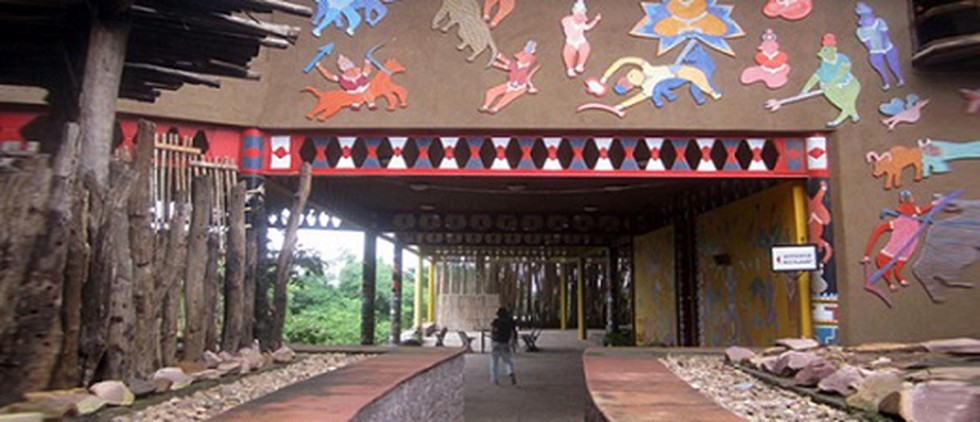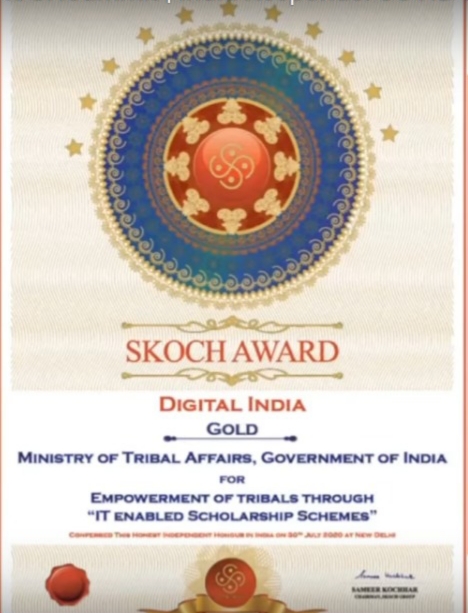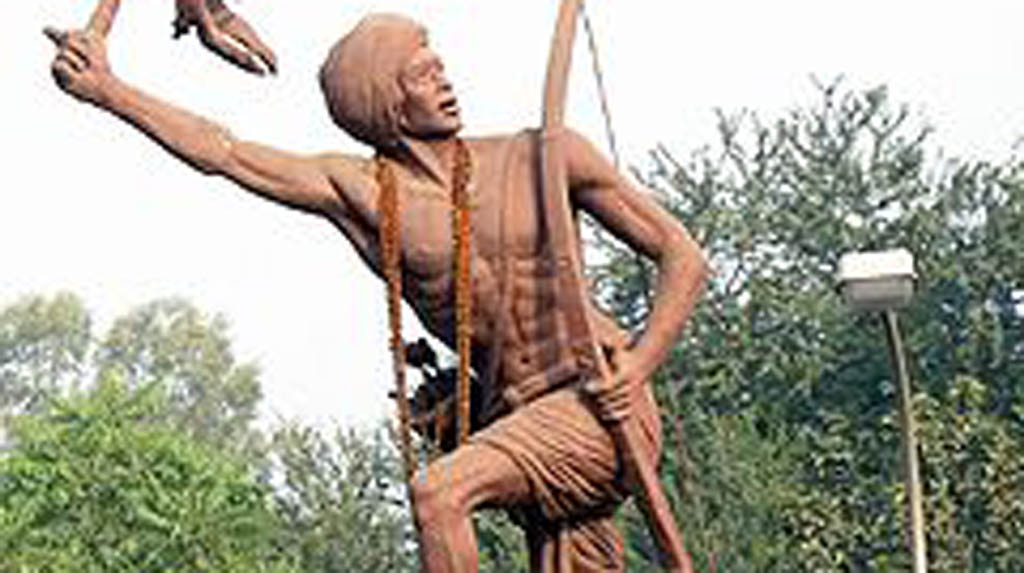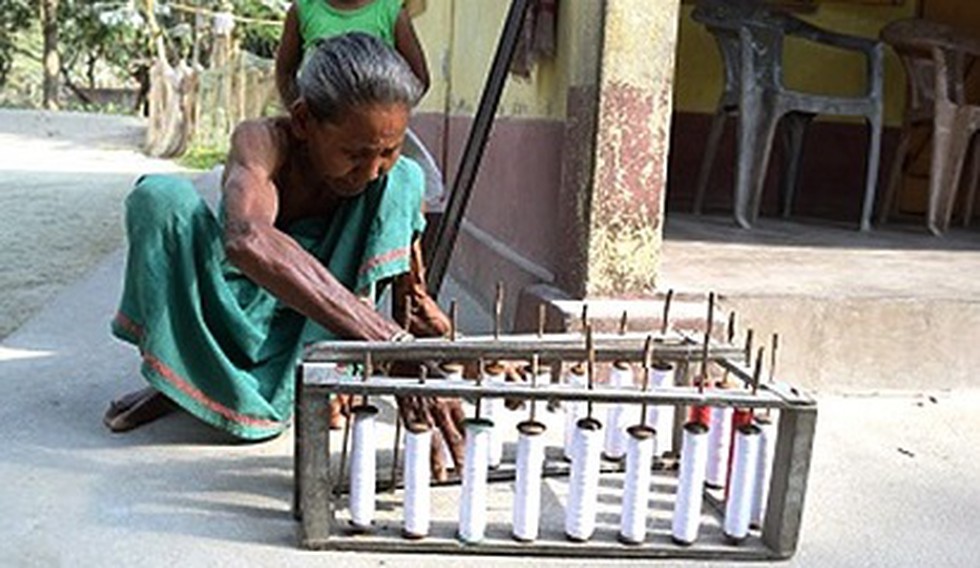MINISTRY OF TRIBAL AFFAIRS
1. Goal’ programme for Digital Skilling of Tribal Youth across India
Recently, the Union Minister for Tribal Affairs launched “GOAL (Going Online As Leaders)” programme at a webinar in New Delhi.
GOAL is a joint initiative of Facebook and the Ministry of Tribal Affairs. Key Points
- The GOAL programme is designed to provide mentorship to tribal youth through digital
- The program will focus on three core areas – Digital Literacy, Life Skills and Leadership and Entrepreneurship.
- The program intends to upskill and empower 5,000 tribal youths in the current phase to harness the full potential of digital platforms and tools to learn new ways of doing business, explore and connect with domestic and international
- The programme has been designed with a long term vision to develop the potential of tribal youth and women to help them acquire skills and knowledge through mentorship in various sectors including horticulture, food processing, bee keeping, tribal art and culture, medicinal herbs, entrepreneurship among
- The program aims to enable Scheduled Tribe (ST) youth in remote areas to use digital platforms for sharing their aspirations, dreams and talent with their
- All the mentees will be provided with smartphones and Internet access (for one year) by Facebook along with exposure to various external forums that will give opportunity to the participants to showcase their entrepreneurial skills and leadership abilities.
- The program will also create awareness amongst tribal beneficiaries about various schemes initiated by Central and State Governments for welfare of STs as well as their fundamental duties.
2. Tribal Health & Nutrition Portal – ‘Swasthya’
A series of initiatives were announced by the Ministry of Tribal Affairs which included the Tribal Health and Nutrition Portal ‘Swasthya’ and e-newsletter on health and nutrition ALEKH; opening of National Overseas Portal and National Tribal Fellowship Portal
‘Swasthya’
- The e-portal ‘Swasthya’ is a first of its kind providing all health and nutrition related information of the tribal population of India in a single
- Swasthya will also curate innovative practices, research briefs, case studies, and best practices collected from different parts of India to facilitate the exchange of evidence, expertise and
- The Ministry of Tribal Affairs has recognized Piramal Swasthya as the Centre of Excellence for Knowledge Management (CoE for KM) for Health and
- The CoE will constantly engage with the Ministry and provide inputs to drive evidence-based policy and decision-making pertaining to health and nutrition of the tribal population of
3. Expansion of Scheme of Minimum Support Price(MSP) for Minor Forest Produce(MFP) and Upward Revision of MSP of Existing Items during 2020
- During 2020, sweeping changes were made in the existing list of MFP covered under MSP as well as upward revision of MSP of 49 items of MFP in view of the exceptional and very difficult circumstances prevailing in the country on account of the COVID-19 Pandemic, and the potential of the Ministry of Tribal Affairs scheme to offer the much needed support to the tribal MFP gatherers.
- The unprecedented circumstances caused by the ongoing COVID-19 pandemic threw up challenges and resulted in a severe crisis among the tribal population. Unemployment among youth, reverse migration of tribals threatened to throw the entire tribal economy off track. It is in such a scenario that the MSP for MFP has presented an opportunity to all the States.
- In May this year, the Ministry of Tribal Affairs announced Inclusion of 23 additional Minor Forest Produce (MFP) items and stipulation of their Minimum Support Price (MSP) under the Centrally Sponsored Scheme titled “Mechanism for Marketing of Minor Forest Produce (MFP) through Minimum Support Price (MSP) and development of value chain of MFP”. This decision enhancing the coverage from 50 to 73 items.
- In another crucial announcement affecting the livelihoods of tribal gatherers, the Government also revised the Minimum Support Price (MSP) for Minor Forest Produce (MFP) of 49 items. The increase across various items of minor forest produce ranges from 16% to 66%. The increase in MSP as well as expansion of List of covered items under MFP gave the much needed momentum to procurement of Minor Tribal Produce this year. MSP for MFP scheme is to address several issues of exploitation by local traders, ensuring fair returns on their produce. The Scheme provides a social safety net to these underprivileged forest dwellers, and to aid in their empowerment.
- 14 of the newly added items, otherwise agricultural produce, are not commercially grown in the North Eastern part of India but are found to grow in the wild in forests. Hence, the Ministry favourably considered to include these specific items as MFP items for the North-East. Both the above initiatives gave a massive thrust to procurement of MFP by the central and state agencies as well as private traders. The procurement by Central agencies was an unprecedented amount of about Rs 150 crore accompanied by manifold higher procurement of MFP by state agencies as well as private traders.
4. Online Performance Dashboard named “Empowering Tribals, Transforming India” launched
- As a part of unwavering commitment of Government of India to realize Digital India goals, MoTA is an early adopter amongst Social Ministries as it moved towards a data-driven Governance model to achieve digital inclusion, financial inclusion, productivity improvement and social impact. It is ensuring
- that administrative data forms the backbone of evidence-based decision making, outcome-oriented planning and service delivery to the beneficiaries. In this endeavor all schemes and initiatives of the Ministry of Tribal Affairs are digitalized through 20 scheme specific portals and applications which are integrated with the mother website of Ministry – www.tribal.nic.in, and with a comprehensive, interactive, dynamic Performance Dashboard https:// dashboard.tribal.gov.in.
- The performance dashboard, ‘Empowering Tribal – Transforming India’ is part of Digital India Initiative with a vision to empower Scheduled Tribes and bring efficiency and transparency in the system. The portal is an interactive and dynamic online platform that showcases real-time details of 11 schemes and initiatives of the Ministry for achieving relevant SDGs. The portal was launched by Shri Amitabh Kant, CEO NITI Aayog and Shri Ramesh Chand, Member NITI Aayog on 9th August 2020.
- Additionally, the dashboard captures performance of 5 Scholarship Schemes of the Ministry wherein every year about 30 lakh underprivileged ST beneficiaries reap benefits of approximately INR 2500 crores. The dashboard also displays the details of functional schools under Eklavya Model Residential Schools (EMRS) scheme, schools under construction along with district wise details of students in various EMRS schools. Ministry also provides funds to various NGOs working in the area of education and health. The dashboard maps district wise NGO details along with the funds provided. Centrally Sponsored Schemes including Post Matric and Pre-Matric Scholarship, share their data with the ministry from by States.
- The Ministry of Tribal Affairs also monitors STC (Schedule Tribe Component), wherein 41 Ministries spend a fixed percentage of their budget for welfare and development of Scheduled Tribes. In 2019-20, 41 Ministries in more than 275 schemes allocated a budget of Rs 51,000 crore. The performance of all these Ministries can be seen on various parameters in the Dashboard along with various e-initiatives of the Ministry.
5. Ministry of Tribal Affairs signs MoU with IIPA for Setting up National Institute of Tribal Research (NITR) at IIPA Campus, New Delhi
Ministry of Tribal Affairs (MoTA) and Indian Institute of Public Administration (IIPA) signed an agreement for setting up of National Institute of Tribal Research (NITR) at the IIPA Campus, New Delhi.
About the institute:
- The Ministry is funding Tribal Research Institutions for research on various aspects of tribal life & culture and intervention of research with the policy will be emphasized in their
- Roles- The Tribal Research Institutes (TRIs) have a very important role to play and their research should focus on drawing a road map for future
- It will have an educational wing to educate students on tribal development and tribal art & culture.
- It will be functional in a few months and will be engaged in quality tribal research in collaboration with reputed government and non- government NGOs spread over the
6. Shri Arjun Munda Launches ‘Capacity Building Programme for Scheduled Tribes PRI Representatives’ and ‘1000 Springs Initiatives’ in Bhubaneswar
- A Programme for Capacity Building of Scheduled Tribe Representatives in Local Self Governments has been launched in Bhubhaneswar, Odisha. The programme was launched by the Union Tribal Affairs Minister Shri Arjun Munda. “1000 Spring Initiatives” and an online portal on GIS-based Spring Atlas with hydrological and chemical properties of the Springs were also launched during the event. FRA Atlas of Odisha and short documentary film on FRA in Odisha were also released on the occasion.
About “Capacity Building Programme for Scheduled Tribe Pri Representatives”:
- The Capacity Building initiative aims to empower the tribal PRI representatives by improving their decision making capabilities at local government level. It also stresses on constitutional and legal provisions that safeguards and supports the rights and welfare of the tribal population. The above programme will also ensure the participation of ST PRIs representatives in planning, execution and monitoring of policies and programmes launched by the government.
About ‘1000 Springs Initiative’:
- ‘1000 Springs Initiative’ aims to improve the accessibility of safe and adequate water for the tribal communities who are living in difficult and inaccessible areas of rural India. Springs are basically natural sources of groundwater discharge which have been used extensively in the mountainous regions across the world as well as in India. The ‘1000 Springs Initiative’ includes the provision of infrastructure for piped water supply for drinking; accessibility of water for irrigation and provision for water for backyard nutrition gardens, which is also expected to generate sustainable livelihood opportunities for the tribal people. The initiative will support in harnessing the potential of perennial springs’ water which can also be used to address the natural scarcity of water in tribal areas.
Online portal on GIS-based Spring Atlas
- Online portal on GIS-based Spring Atlas has been introduced to improve the accessibility of these data easily from an online platform. Currently the data of more than 170 springs is being available on the Spring Atlas.
7. EMRS/EMDBS holidays re-scheduled in view of contingent health situation due to COVID-19
- The Ministry of Tribal Affairs wrote to Tribal Development Departments of all States with Eklavya Model Residential Schools for rescheduling of Holidays in Eklavya Model Residential Schools (EMRS) and Eklavya Model Day Boarding Schools (EMDBS) funded by the Ministry of Tribal Affairs in view of the fact that at various places local administration have issued directions to take preventive measures including declaration of vacations to avoid spreading of infection due to Covid. In certain cases, the directions issued permits completion of the scheduled annual examinations.
8. Shri Arjun Munda wrote to Chief Ministers to advise State Nodal Agencies for undertaking procurement of minor forest produce at MSP in right earnest
- The Union Minister for Tribal Affairs Shri Arjun Munda had written a letter to the Chief Ministers of 15 States to advise the State Nodal Agencies for undertaking procurement of Minor Forest Produce (MFP) at
- Minimum Support Price (MSP) in right earnest. These States include Uttar Pradesh; Gujarat; Madhya Pradesh; Karnataka; Maharashtra; Assam; Andhra Pradesh; Kerala; Manipur; Nagaland; West Bengal; Rajasthan; Odisha; Chhattisgarh; and Jharkhand.
- In the letter, he said that the current situation brought about due to outbreak of Covid-19 has posed an unprecedented challenge across the country. Almost all the States and UTs in India are affected by it, to varying degrees. Poor and marginalized including the tribal communities are most vulnerable in this situation. This being the peak season for collection and harvest of Minor Forest Produce (MFP)/Non Timber Forest Produce (NTFP) in many regions makes it imperative to initiate certain proactive measures to ensure the wellbeing of the tribal communities and their economy based on MFP/NTFP by providing them safety and ensuring their livelihoods.
9. M/o Tribal Affairs receives SKOCH Gold Award for its “Empowerment of Tribals through IT enabled Scholarship Schemes”
- Ministry of Tribal Affairs (MoTA) has received SKOCH Gold Award for its “Empowerment of Tribals through IT enabled Scholarship Schemes” project of Scholarship Divison of the Ministry. The 66th SKOCH 2020 Competition was entitled “INDIA RESPONDS TO COVID THROUGH DIGITAL
- GOVERNANCE” and MoTA chose to participate in DIGITAL INDIA & E- GOVERNANCE – 2020 Competition and the awards were announced yesterday
- i.e. on 30th July, 2020. This project is a step towards achieving unwavering commitment of Government of India towards realizing the dreams of Digital India and bringing transparency as well as ease in the delivery of services. To assimilate with the larger vision of ‘Digital India’ and to realize the cherished goal of e-governance, MoTA hasintegrated all 5 Scholarship Schemes with DBT Portal under the guidance of DBT Mission. The initiative was rolled out on 12th June 2019 by the Union Minister for Tribal Affairs Shri Arjun Munda and MoS Ms Renuka Singh Sarota.
- During 2019-20, under 5 Scholarship schemes, about Rs. 2500 Cr were directly transferred to student’s Bank accounts through DBT to approximately 30 lakh students in 31 States and UTs. The portal provides facility to States for data sharing through Web services and States can up-load proposal, UCs and SOE online.
- This has brought paradigm shift from Paper based UC monitoring mandated for budget release to data enabled budget release and monitoring process. This has considerably reduced scholarship release time and now it is possible to release scholarship in the same academic year in which admission is taken. MoTA has also entered into CEDA (Centre for Data Analytics), which analyzes and prepares State Wise Data Analysis Reports, which helps in data based planning. In Fellowship Scheme run by Ministry for doing PhD, all 331 Universities have been integrated with the portal thereby enabling verification application online.
- Portal is also integrated with Digi-Locker developed by MeiTY so that documents are directly fetched and saves verification time.
- The portal has facility to upload ddocumentswhich are not on Digi-Locker. Each of these portals have Grievance Redressal and Communication Mechanism and all stake holders, Universities, Bank, PFMS, Students and States can upload queries, grievances and upload documents, which has made grievance redressal mechanism easy, transparent and fast. KPMG, as part of its mandate for NITI Aayog, has carried out a national evaluation of Centrally Sponsored Schemes focused on social inclusion, in which it has recognized the Direct Benefit Transfer (DBT) Portal of Ministry of Tribal Affairs as a best practice in e- governance which has brought about greater transparency, accountability and radical improvement in service delivery to Scheduled Tribe students.
- In order to have connect with 7000 students studying in Top 246 Institutions across India and 4000 Students doing PhD in more than 300 Universities, MoTA has conceptualized unique concept of Talent pool for empowering ST scholarswhich can be connected to various research projects run by TRIs and States.
- The project is implemented by IIPA and would help in understanding the aspirations of tribal youth and help in realizing their cherished dream to develop as entrepreneurs, researchers and flag-bearers of schemes of Government of India meant for welfare for STs.
- While receiving Award, Dr Naval JitKapoor, Joint Secretary, MoTA said that DBT is a silent revolution which has changed the governance mechanism in the country and the projects of such scale are possible only because of vision of our Prime Minister and constant guidance of DBT Mission, NITI Aayog and support of Union Minister, Secretary, entire MoTA team, who have worked very hard during lockdown to ensure that the tribals get their dues in time.
10. M/o Tribal Affairs Setting up Tribal Freedom Fighters’ Museums to give due Recognition to Sacrifices and Contribution to Country’s Freedom Struggle by Tribal People
- Ministry of Tribal Affairs is developing “Tribal Freedom Fighters’ Museums” dedicated to the contributions of the Tribal people in India to the freedom strugglepursuant to Prime Minister’s announcementin his Independence Day Speech on15thAugust 2016, regarding setting up tribal freedom fighters’ museums. The Prime Minister in his address said, “The Government desires and is planning permanent museums in the States where Tribals lived, struggled against the British and refused to be bowed down. The Government will work to make such museums in different States so that the coming generations may know how our tribals were far ahead in making sacrifices”.
- As per the directions of the Prime Minister, all the museums will have strong usage of technologies like Virtual Reality (VR), Augmented Reality (AR), 3D/7D holographic projections etc.
- These museums will trace the history along the trails, along which the tribal people in hills and forests fought for their right to live and will, therefore, combine ex situ display with in situ conservation, regeneration initiatives. These will be museums, objects as well as ideas. These will demonstrate the way tribal struggles for protecting their custodial concerns for the biological and cultural diversity of the country, have helped in nation building.
- Ministry of Tribal Affairs further held a series of consultations with States in this regard. A National Level Committee (NLC) under the Chairpersonship of Secretary, M/o Tribal Affairs was constituted to appraise and approve the proposals including monitoring of progress. Meetings were held with the State Governments on numerous occasions to discuss the concept and design of the proposed museums. State government officials were given exposure visit to Virasat-e-Khalsa museum, Punjab and ManavSangrahalaya at Bhopal to acquaint them with designing of museum in sync with storyline and use of technology. After detailed analysis, it was decided to construct a state-of-the-art Tribal freedom fighters’ Museum of national importance in Gujarat. Ministry has also approved setting up museums for tribal freedom fighters in other eight States so far.
- Out of 9 sanctioned tribal freedom fighters’ museums, two museums are near completion and remaining seven are at different stages of progress. It is expected that by the end of 2022 all the museums will come into existence. Further new museums will be sanctioned in coming future in collaboration with the States.
- History of freedom fighters in India has recorded scores of instances of unequal battles that became inevitable when imperialist forces came out with their quest for acquiring territories through the use of brute force, destroying the sovereignty and freedom of free people and bringing in the process a holocaust to the lives of innumerable men, women and children. It is a battle between the evil designs of expansionism and the powerful instinct of self-presentation. Tribals have resisted the British authority and other exploiters. For many centuries, tribals were isolated, scattered in forests. Each tribe has established its
- own socio cultural diversity. They launched movements against the British authority in their respective regions. Their agitations against the outsiders could be called anti-colonial. They revolted against them because of their exploitation in the form of encroachment on their land, eviction from their land, annulment of the traditional legal and social rights and customs, against enhancement of rent, for transfer of land to thetiller, abolition of feudal and semi-feudal form of ownership. On the whole, these movements had social and religious overtone. But they were directed against the issues related to their existence. Tribal Resistance Movement was an integral part of Freedom movement of India. In this historic struggle, the heroic role played by many distinguished tribal leaders like BirsaMunda, Rani Gaidinliu, LaxmanNaik, and Veer SurendraSai and many others.
- The most dominant characteristic of the tribal resistance movement was that it was essentially an uprising against the foreign rulers and in that sense could be constructed to be the precursor of the national liberation movement which took a definite shape and gathered momentum under the inspiring leadership of Mahatma Gandhi. It is immaterial as to what were the compulsions or motivations behind this resistance movement; it is immaterial if the tribal revolutionaries had no formal education and training in staging armed rebellions and had no common leadership to guide and spur them to action. The unmistakable fact remains that they could no longer meekly submit to the intervention of the foreign rulers in their habitat, age old customs, rituals and cultural moors. They acted as the stooges of the imperial power and all their action and conduct were directed at uprooting the foundations of the foreign rule.
11. Joint Communique Signed between M/O Tribal Affairs and M/O Food Processing Industries Defining Convergence Mechanism in Implementation of PMFME Scheme for Micro Food Processing Industries
- A “Joint Communique” was signed by Shri Deepak Khandekar, Secretary, Ministry of Tribal Affairs and Smt Pushpa Subrahmanyam, Secretary, Ministry of Minister for Food Processing Industries today in the presence of Shri Narendra Singh Tomar, Union Minister for Food Processing; Shri Arjun Munda, Minister
- of Tribal Affairs and Shri RameshwarTeli, Minister of State for Food Processing. The Joint communiqué addressed to States clearly defining Convergence mechanism in implementation of Pradhan Mantri Formalization of Micro Food Processing Enterprises (PMFME) Scheme of MoFPI and role of both Central Ministries and their respective departments at State level.
12. Success Story of Ice Stupa: Unique Initiative under Centre of Excellence Project
Resolving Water Problems in 26 villages through Ice Stupas in Ladakh in partnership with SECMOL
- Ladakh is characterised by distinct geographical and climatic features. It is known as a cold desert. With reducing precipitation, increasing average temperatures, and reduced glaciers to water the villages some Himalayan villages are now slowly turning into ghost towns with abandoned but habitable houses and wasted agricultural land. This gives rise to three major modern issues of Ladakh relating to water scarcity, low indoor temperatures in buildings, and a shift from the original agrarian-based economy resulting into youth migration.
- A unique way to solve water problems and livelihood problems through Action Research project in Ladakh has been initiated with SECMOL, Ladakh. 26 Ice stupas were built by Villagers and on an average 3 lakh liter water was stored in each such stupa for the winter season of 2019-20. Through this project, anticipating villagers were able to conserve about 75 lakh litres of water during winters and ecotourism activities like “1st Ladakh Ice Climbing Festival” gave opportunity to the local youth to be indulged in eco-entrepreneurial ventures.
- Image Clockwise the Ice Stupas of Ladakh in 2019-20 season. The 1st , 2nd and 3rd biggest Ice Stupas from the villages of Igoo, Tarchit and Phyang. The last image shows a stack of Ice Stupas built in Gangles valley during an Ice Valley prototype project to conserve and later supply water for downstream villages and ultimately Leh city.
- It will help in rrehabilitation of abandoned villages and can change economy of the village by solving water problem, plantation of trees and irrigation. The stupas are source of tourist attraction and plantation of trees through community participation and engaging local in Home Stay project will help in their economic upliftment. In 2 years,Ice Stupas would be established in 50 villages for drinking water and water irrigation required for agriculture and would go a long way in changing economy of the area.
13. TRIFED Launches transformational “Tech For Tribals” program in partnership with Institutes of National Importance (INIs) to develop Tribal entrepreneurship
- Recently, the Tribal Cooperative Marketing Development Federation of India (TRIFED) has launched a transformational “Tech For Tribals” program in partnership with Institutes of National Importance (INIs) to develop Tribal entrepreneurship.
Key Points
- Tech For Tribals program aims to transform 5 crore Tribal Entrepreneurs by capacity building and imparting entrepreneurship skills to tribal forest produce gatherers enrolled under the Pradhan Mantri Van Dhan Yojana (PMVDY).
- The program will ensure higher success rate of the Tribal Entrepreneurs by enabling and empowering them to run their business with marketable products with quality
- Under the program trainees will undergo a 30 days training program over six weeks comprising 120 The Partner institutions will develop course contents relevant to Entrepreneurship in Value Addition and Processing of Forest Produces.
- The course curriculum will include Achievement Motivation and positive psychology, Entrepreneurial Competencies, capacity utilization, Product positioning – Grading / Sorting, Branding, Packaging,
TRIFED
- The Tribal Cooperative Marketing Development Federation of India (TRIFED) came into existence in It is a national-level apex organization functioning under the administrative control of the Ministry of Tribal Affairs.
- The objective of TRIFED is socio-economic development of tribal people in the country by way of marketing development of the tribal products such as metal craft, tribal textiles, pottery, tribal paintings and pottery on which the tribals depend heavily for a major portion of their income.
- TRIFED acts as a facilitator and service provider for tribes to sell their
- The approach by TRIFED aims to empower tribal people with knowledge, tools and pool of information so that they can undertake their operations in a more systematic and scientific
- It also involves capacity building of the tribal people through sensitization, formation of Self Help Groups (SHGs) and imparting training to them for undertaking a particular
- TRIFED has its Head Office located in New Delhi and has a network of 13 Regional Offices located at various places in the country.
14. TRIFED takes a giant leap towards digitisation of Tribal Commerce
The Tribal Cooperative Marketing Development Federation of India (TRIFED) celebrated its 33rd Foundation Day on 6th August 2020 and launched its own virtual office on the same day.
Key Points
Virtual Office:
- It has 81 online workstations and 100 additional converging State and agency workstations that will help the team members of TRIFED in working with their partners across the country on mission-mode towards bringing the tribal people closer to mainstream development
- To gauge the level of employee engagement and streamline their efforts, an Employee Engagement and Work Distribution Matrix with Dashboard Links has also been
Reasons:
- After the Covid-19 pandemic, every aspect like shopping, banking, working, etc. has gone online and it has been observed that the trend has increased even after relaxations of lockdowns.
- All these organisational initiatives are a part of TRIFED’s ambitious all-encompassing digitisation drive to promote tribal commerce and map and link its village-based tribal producers and artisans to national and international markets by setting up state of art e- platforms benchmarked to international standards.
Tribal Cooperative Marketing Development Federation of India
- Formation:
- TRIFED came into existence in 1987 as the national nodal agency under the aegis of the Ministry of Tribal Affairs.
- It was registered under the then Multi-State Cooperative Societies Act,
- It started its operations in 1988 with its head office in New Delhi.
Objectives: Socio-economic development of tribal people, promotion of economic welfare, empowerment of tribal people with knowledge, tools and information and their capacity building.
Functions: It mainly undertakes two functions which are Minor Forest Produce (MFP) Development and Retail Marketing and
Initiatives and Involvement:
- It started the procurement and marketing of tribal art and craft items through its first retail outlet called TRIBES INDIA in New Delhi in
- It has organised the Van Dhan Internship Programme, to enhance the output of the Van Dhan
- It has also launched a transformational Tech For Tribals program in partnership with Institutes of National Importance (INIs) to develop Tribal
- TRIFOOD Scheme is a joint initiative of the Ministry of Food Processing Industry, Ministry of Tribal Affairs and TRIFED and it promotes value addition to
- Mechanism for Marketing of MFP through Minimum Support Price (MSP) and Development of Value Chain for MFP was implemented in 2013 to ensure fair returns to forest dwelling Scheduled Tribes (STs) and other traditional forest
- It has organized a Webinar on Covid-19 Response in collaboration with the United Nations Children’s Fund (UNICEF) and the World Health Organisation (WHO).
- The webinar was organised for virtual training of TRIFED Trainers and Self Help Groups (SHGs) on basic orientation on Covid-19 response and key preventive measures to ensure that tribal gatherers carry on their work
15. Trifed Launches its Own Virtual Office Network to Spearhead Tribal Socio-Economic Development on its 33rd Foundation day
- With Pandemic Covid-19 raging across the country, when every aspect of life has gone online, TRIFED has launched its own Virtual office on its Foundation Day, August 6, 2020. The TRIFED Virtual office network has 81 online workstations and 100 additional converging State and agency workstations that will help the team of TRIFED warriors work with their partners across the country – be they from the nodal agencies or implementation agencies –on Mission-mode towards bringing the tribal people closer to mainstream development.
16. Team Trifed Wins Virtual Edition of National Awards for Excellence in PSU for Investment in Start-Ups
- The team of TRIFED Warriors has been working diligently towards the transformation of lives of the tribal population across the country. Their unstinted efforts and initiatives got worthy recognition at the Virtual Edition of National Awards for Excellence – PSU held on October 14, 2020.Combined, the team won three Awards: two individual awards for the exemplary and inspirational leadership of Shri Pravir Krishna(MD, TRIFED) in the CEO of the Year and Visionary Leadership Award categories and a collective award in the Investment in Start-Ups Category.
17. Trifed, M/o Tribal Affairs to Expand Convergence Model in a big way to step up Tribal Incomes, Skills and Entrepreneurship..200 Projects to be taken up under Trifood/SFURTI Model
- In a new convergence -based initiative, TRIFED of the M/o Tribal affairs has planned the transformation from the Van Dhan mode to the Tribal enterprise mode. One of the major actions being planned is the convergence of the Van DhanYojana with the MSP for MFP. A way of doing that will be through the convergence of the Van DhanYojana to the Enterprise Model: from processing to cluster development under SFURTI (Scheme of Fund for Regeneration of Traditional Industries) and TRIFOOD. In this cluster based model of development, a typical SFURTI unit will include 10 Van Dhan Kendras (a cluster) and include 3000 households and encompass a tribal population of 15000 tribals. The TRIFOOD / SFURTI model converging both the MSP for MFP and the Van Dhan component, has already been launched in August in Raigad, Maharashtra and Jagdalpur, Chhattisgarh by the Tribal affairs Minister, Shri Arjun Munda. . It has been planned to take up 200 TRIFOOD projects across the country in the first phase in coming months with the plan to initiate 100 TRIFOOD projects immediately


